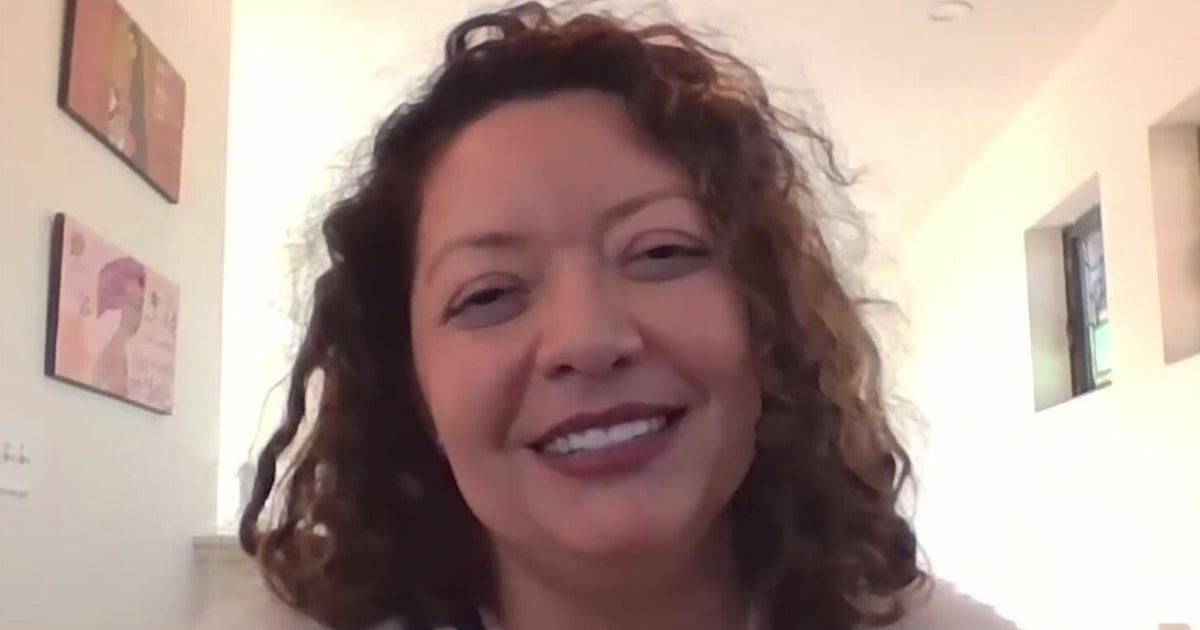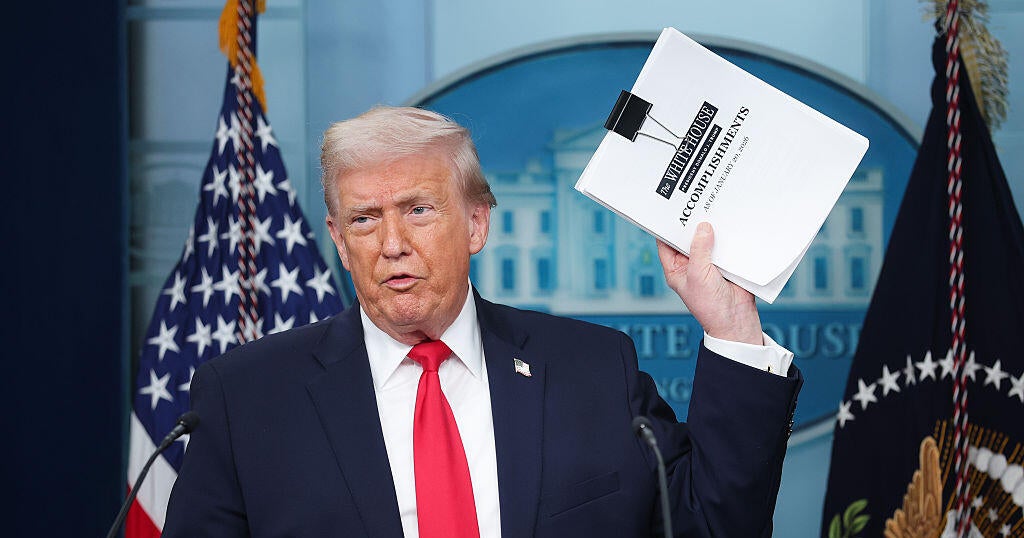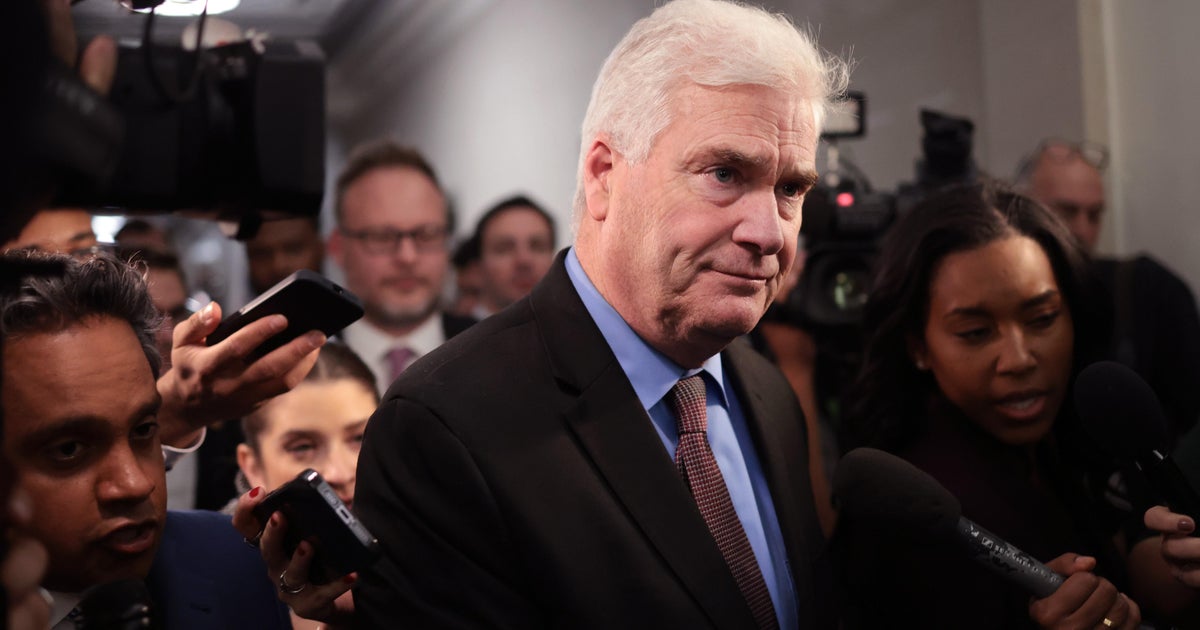Trump to unveil immigration plan that's still light on specifics
President Trump will propose sweeping changes to the legal immigration system with a plan he'll outline on Thursday.
All his proposal lacks are details about addressing certain sections of the immigration system, on-the-record Republican backing and support from Democrats in control of the House, who are sure to balk at the lack of any protections for undocumented immigrants who arrived in the country as students. A senior administration official who briefed reporters on the topic Wednesday wouldn't say whether any Democrats have been consulted yet.
"Right now this is the Trump plan. We're hoping this will become the Republican plan," said the senior administration official.
The proposal aims to alter the composition of incoming legal immigrants, with a focus on increasing the share of highly skilled immigrants, the official said. The plan also calls for improving physical border security.
But many specific details of the plan have yet to be hashed out, and the administration official couldn't estimate when text of the plan would be released. The proposal does not include protecting Deferred Action for Childhood Arrival (DACA) recipients, a key sticking point for Democrats and immigration advocates. At the moment it also does not include any reductions or changes for or H-1B or H-2B temporary work visas, the kind of visas the president's businesses rely heavily upon, according to federal records.
The official said the White House thinks it has a good sense of where many Democrats stand, but intends to put the proposal out and gauge the reaction. "Let's see" what happens from there, the official said.
It's also unclear how this proposal would have more of a chance now than in the first two years in which Republicans controlled both chambers of Congress. Overwhelming Republican support isn't a lock yet either — Republican Sen. Susan Collins of Maine told the Washington Post Wednesday she is "concerned about the fate of the DACA young people, and they cannot be excluded from any immigration package." The senior administration official estimated the White House has briefed roughly half of Senate Republicans so far.
Republican Sens. John Kennedy and Marco Rubio expressed skepticism about the plan's chances in Congress Wednesday afternoon. When asked if he was optimistic about the prospects of any immigration bill passing, Kennedy said, "I'm not encouraged."
"I've seen no indication that my Democratic friends in the Senate are willing to work productively on anything until the 2020 election is over with," Kennedy said.
Rubio opined that a more incremental approach which addresses border security and legal immigration without dealing with the undocumented population had a better chance of passage than a comprehensive deal. When asked if he was optimistic about its chances of passage he called it a "tough issue."
On Thursday, the president will unveil "his thoughts" on immigration and outline what he believes needs to be done. Specific steps will be released later, the official said.
The White House says the proposal would tighten family-based migration to focus on allowing nuclear families to migrate to the U.S., rather than extended family members. It would also encourage those with bachelor's degrees, relevant vocational degrees or higher levels of education to come to the U.S. and stay, rather than returning to their home countries once they're done with their education, the senior administration official said.
The proposal would, according to White House estimates, keep the level of green cards roughly stagnant, at 1.1 million new green cards per year. Green card requirements would include passing a civics test and other basic "fungible" criteria, as well as grant points to applicants based on qualities like age — younger is better under this proposal — English proficiency, education and an offer of employment or pledge to create jobs.
The White House believes the proposal would increase worker wages and raise revenue without raising taxes, among other economic benefits.
The proposal would also focus on improving physical border security — including physical infrastructure, infrastructure between points of entry, completing a border wall in prioritized locations and upgrading ports of entry.
The senior administration official who briefed reporters said Sen. Lindsey Graham's plan to limit asylum claims and extend detention periods for migrant families "is a subset" of the overarching immigration proposal the White House is offering.
The president, the senior administration official said, wants to lead on the issue of border security, after more than two years of watching members of Congress put forward their own ideas. The senior administration official pushed back against claims that others in the administration are behind the proposal.
"This isn't a Jared Kushner proposal, it's not a Stephen Miller proposal, it's not a Kevin Hassett proposal, it's a Donald Trump proposal," the senior administration official said.
Asked how this proposal is anything more than a reelection strategy without Democratic input, the senior administration official said, "If they don't want to engage then it would be part of the election. If they want to engage it could be part of the negotiation. That's gonna be up to them."
The senior administration official who briefed reporters Thursday said the "president's mandate to us is come up with something" detailed that can unify Republicans.
But can it pass?
"Maybe we can, maybe we can't. But we're going to try like hell," the senior administration official said.
Alan He contributed to this report





